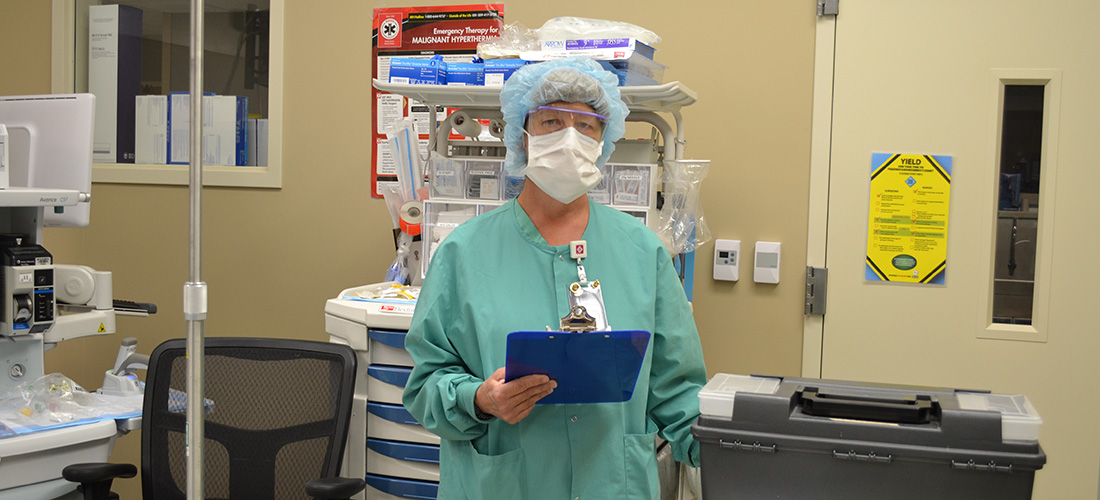Prepare for Malignant Hyperthermia Outside the OR
By: Aorn Staff
Published: 8/26/2021
Prepare for Malignant Hyperthermia Outside the OR

June 6, 2021
 When two malignant hyperthermia (MH) cases occurred outside their operating room in a short time, the Advocate Aurora Health System
(the system has facilities in both Wisconsin and Illinois) Corrective Action/Preventive Action (CAPA) team, the team set out to analyze and improve their response to this life-threatening anesthesia reaction.
When two malignant hyperthermia (MH) cases occurred outside their operating room in a short time, the Advocate Aurora Health System
(the system has facilities in both Wisconsin and Illinois) Corrective Action/Preventive Action (CAPA) team, the team set out to analyze and improve their response to this life-threatening anesthesia reaction.
Unfortunately, malignant hyperthermia has become increasingly widespread due to:
- More procedures involving anesthesia being performed outside of primary OR sites.
- An increase in emergency situations where anesthesia is administered before the patient’s medical history can be obtained, such as rapid sequence COVID-related intubations.
- According to the Malignant Hyperthermia Association of the U.S., people with genetic susceptibility are moving to different parts of the U.S. In the past, cases have been more concentrated in Wisconsin, Michigan, West Virginia, and Nebraska.1
The CAPA team of allied professionals created a consistent process to identify, respond, and treat MH episodes across their facilities. Successful implementation of this standardized MH response involved:
- Comprehensive analysis on best practices for handling MH cases across various departments and scenarios. The team’s human factors engineer, and a learning technology consultant provided especially valuable perspectives.
- Extensive simulation drills. The team tested medication mixing, cart contents, and documentation to determine the most effective processes for the various departments.
- Persistence in the face of circumstances that lengthened the program’s roll-out timeline. A merger of two large health systems in 2018 made standardizing the program more complex. Then, due to COVID-19, the project was paused in spring 2020 for several months. Yet the team resumed implementation later in 2020 and completed the education portion by the end of 2020.
The team offers several recommendations for facilities that want to improve their response to MH cases:
- Identify all areas that could experience an MH event.
- Make highly realistic training simulations available and encourage regular drills.
- Have an MH code to call on the overhead announcement system and a specific MH code team to respond.
The Advocate Aurora Health System is currently implementing the diagnostic simulations across its 26 hospital systems and ambulatory surgical centers.
Reference:
- Malignant Hyperthermia Association of the U.S. (n.d.). Frequently Asked Questions. FAQs - MHAUS

